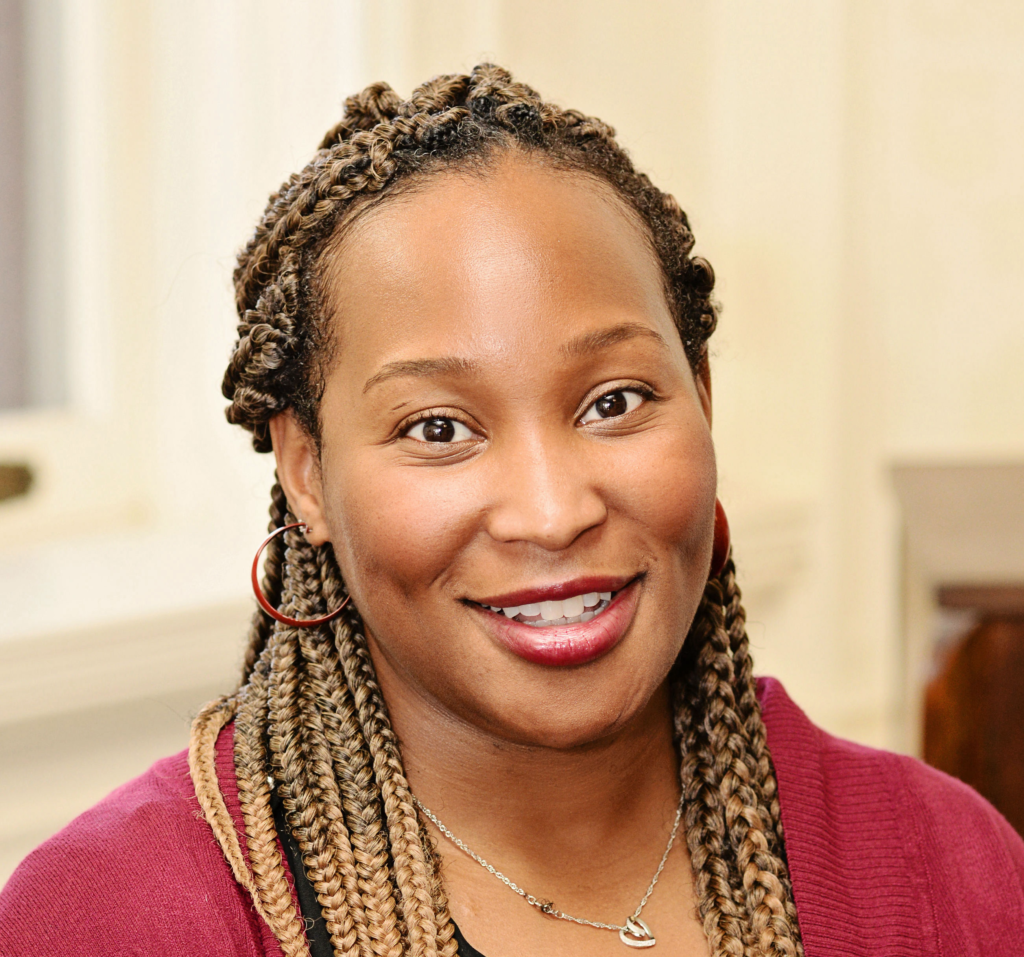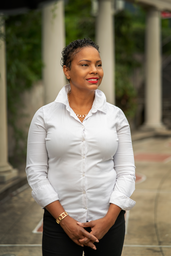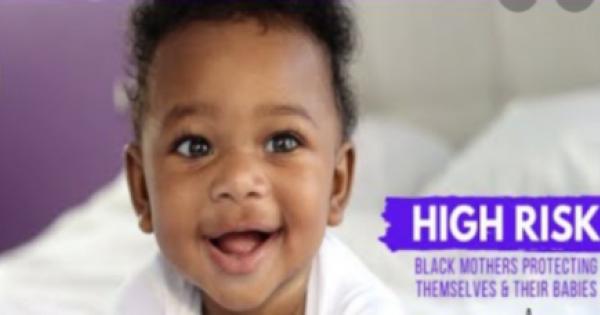( ENSPIRE Community Spotlight ) Black Babies Awareness Month Fights For Change By Educating Others
ENSPIRE Contributor: Naomi Stamps
November 1st is the start of Black Babies Awareness Month, led by Dr. Iheoma U. Iruka and Dr. Leah Austin. This campaign focuses on informing others about the lack of resources provided to Black babies and infants, such as education and healthcare, besides preserving the development of Black children’s futures. The Equity Research Action Coalition, which Dr. Iruka founded, supports the initiative.
The Coalition brings together policymakers and practitioners to co-create science-based research detailing the impact of systematic racism from the prenatal stage to childhood. It recently released the first-ever National Black Child Agenda, which seeks to demolish racially motivating factors that continue to constrict black youth today. The plan recognizes ten crucial policies that need to be addressed, including child tax credits, harsh discipline practices, and culturally responsive training. Over a million Black babies are born in the US, and many of them grow to be successful despite the racism that awaits them.

Unfortunately, many others will still be targeted because of their skin color. The ERAC states that “Over 60 percent of Black babies live in families with incomes below 200 percent of the federal poverty level, which is more than double the rate for White babies (29 percent).” The Black Babies Awareness campaign seeks to promote, protect, and preserve the welfare of Black families to provide them with more opportunities.
ENSPIRE spoke with Dr. Iruka about Black Babies Awareness Month and her future plans.
What factor inspired you to create Black Babies Awareness Month, and what was the process of creating it?
I am a Black mother of two Black babies, a social justice researcher, and someone who lives and works on behalf of my communities. I am always shocked that while Black people make up about 13% of the population, over 60% of Black babies live in low-income households. This is not acceptable to me, and it should not be acceptable to anyone else. From a national survey, over 30% of Black parents with babies reported that they were concerned that their child would be mistreated, unfairly treated, discouraged, and excluded from opportunities. Black families are calling for help that their babies are not forgotten, and we hear and see them. It is our obligation to protect, promote, and preserve the health, wealth, educational access, and overall well-being of Black families and babies.
Black Babies Awareness Month is a culmination of the Equity Research Action Coalition’s ongoing work around empowering Black children and families. We’ve leveraged the expertise of researchers and the lived experiences of Black parents to develop an awareness campaign and national policy platform that brings attention to the systemic issues that the Black community has faced. We’re proud to gain the support of key partners and the broader community around this groundbreaking national effort.
How did you and Dr. Austin cross paths so you could work on this project together?
I have engaged with the National Black Child Development Institute (NBCDI) for over 15 years as a conference attendee, research advisor, and collaborator. NBCDI is the preeminent organization focused on Black children, families, and communities. Thus, it was necessary and an honor that I work with them to co-create and release the Black Child National Agenda. Dr. Austin was appointed as CEO of NBCDI amid the agenda being drafted. We are fortunate that she gave her thoughts and blessings before its finalization and eventual release.
I look forward to working with Dr. Austin, the NBCDI board, leadership, affiliates, and partners in moving this agenda forward.
What are some ways people can acknowledge Black Babies Awareness Month in their communities?
There are many ways that people can acknowledge Black Babies Awareness Month in their communities. First, they can spread the word about this initiative by using the following sample social media posts and graphics to spread the message, found here. They can also read and share the press release found here. Finally, I would encourage every person to take a few minutes each day to examine what they can do to protect, promote, and preserve the health, wealth, and well-being of Black babies and their families. For example, they can call on their local officials to pass policies that provide universal child care, health insurance, paid family leave, and maintain child care tax credits. They can call on them to provide resources and funding to Black-owned and led organizations, businesses, communities, and child care providers and commission a study to pass reparations.
In fighting inequality, many people wait for something to happen in the news or wait until an awareness month arises. What do you think needs to be done to keep up the momentum?
To maintain the awareness, we must continue to collaborate with all organizations and advocates fighting for racial justice and human rights, especially those focused on the health, wealth, and well-being of Black families and babies. We have to ensure that Black communities and those who support Black communities continue to bring attention to injustices being committed against Black babies, families, and communities. We have to also call for policies and programs that protect, promote, and preserve their health, wealth, education, and overall well-being. Finally, we must continue to show the strengths, joy, and resilience of Black babies and their families and communities by showing that we continue to thrive even as we deal with multiple challenges such as the coronavirus and systemic racism.
What has been your greatest accomplishment in your fight for equality?
While we’ve made critical gains in our community, we still have gaps that persist in our quest for freedom and justice. We must continue to fight for equality in every space, including health care, child care, criminal justice, housing, and education. However, there are some positive takeaways in my fight for equality. Firstly, there has been so much engagement from federal, state, and local agencies and organizations about advancing equity and being more inclusive in their programs and policies.
Secondly, we are seeing funders, including those who fund my center, the Equity Research Action Coalition, ask how they can engage in anti-racist and equitable fund giving and have a more profound impact on their grantees and the communities they are invested. Finally, as a researcher, I see some positive signs pointing to how our approaches and methodologies need to move from deficits to strengths and challenge how we research and interpret our findings, especially for policymakers and practitioners. We know fighting for justice is hard work, and I am fortunate to engage with so many individuals I can learn from and work besides within the fight to uplift our Black babies.
Are there any future projects you’re working on?
Just like racism is in everything we do, I am working on several projects to address many facets of Black babies, families, and communities. Firstly, I am working on a national clearinghouse to identify, review, and share programs, practices, and policies that ensure Black babies and families’ health, wealth, education, and well-being are protected, promoted, and preserved.
Secondly, we are working on an equity index to help policymakers, agency staff, and community advocates score policies to ensure that they do not harm Black babies, children, families, and communities. We need to provide tools to quickly evaluate whether policies and programs will meet our communities’ needs, which is often not a focus of most policies. Finally, I would encourage everyone interested in what I am working on to connect with me on social media @IheomaIruka and visit my website at https://equity-coalition.fpg.unc.edu.

The leaders of this campaign, Dr. Iruka and Dr. Austin, both have years of experience studying the subject of inequality. Besides founding ERAC, Dr. Iruka is also a Research Professor of Public Policy. She has served in various roles, such as Director of The Center for Early Education Research and Elevation, and conducted a study exploring Black families’ finances during the pandemic and other social-class indicators. Her study called for more black families to have access to financial tools to be independent. Dr. Austin began her career as a teacher and went beyond her role to help parents find resources for their children. She has worked with many nonprofits and philanthropic organizations that enhanced her passion for creating a better future for Black families and children. These two doctors are on a mission to prove that black lives are more than just a hashtag and that they should be treated with respect.
Related Article: SchoolYard Rapper Griot B Uses Music to Teach About Racism







